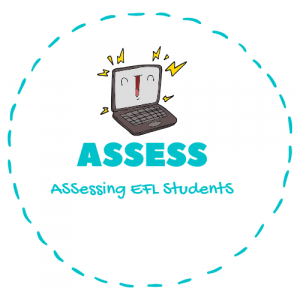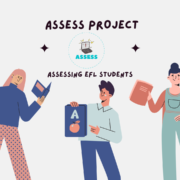Exams & Stress
Exam season is right around the corner. Students of all educational levels will take exams. Exams, as formal evaluation means, are necessary to show one’s knowledge or ability in a particular subject or to obtain qualification and it is no secret that exams are very stressful.
In his article below, Mr. Stephen-John Taylor, Consultant at Cambridge English Language Assessment, tackles the notions of exam stress management-familiarity.
Exam Stress Management – Familiarity
Most students in Greece now take at least a B2 English language examination, with a great many also sitting other examinations at levels further down the CEFR framework. However, the age of the Greek cohort is relatively young and, for most, it is their first time in a formal examination situation: an unfamiliar environment, suspicious invigilators, a strict protocol of precise timing and regulations. The whole experience can be daunting, and there are those in the world of education who campaign vociferously against their students taking any examinations or tests whatsoever. “Why put a teenager through this torture?” they insist. “Why traumatize them at so early an age?”
Now, torture and trauma are strong words, much in the same boat as terror or agony. These well-meaning souls are, of course, missing the point entirely. Proper preparation for an exam is of enormous benefit, helping candidates do well in whatever other qualifications or accreditation they might need to work towards in the future, not to mention being better able to cope with the pressure and deadlines they will surely meet when they enter the workforce. What’s more, challenges such as these help teenagers to grow into better people, encouraging them to aim just that little bit higher than they otherwise would, to ‘enter the zone’ as Vygotsky might have said, preparing them to meet the greater challenges of adulthood.
Yet, despite these motivational and practical benefits, studies such as those by Humphrey (1998) and Witkin (1999) reveal that all of us do indeed experience significant amounts of stress in our early lives, the magnitude of which is, however, often underestimated by parents and teachers alike. Examination stress is clearly part of this and affects a considerable number of candidates, in particular playing a major role in underperformance. Also, of interest here is the finding that the stress we as teachers feel when preparing candidates for examinations filters down to our students, adding to their distress. Nevertheless, while in all honesty our students may never actually look forward to sitting an exam, there are many things within our power as teachers we can do to change their approach and so improve their performance, at the same time boosting our own self-esteem and confidence in our teaching skills and subsequently reducing the damaging consequences of our own insecurities.
Initially, efficient examination stress management falls into three main categories, the first of which is ACADEMIC in nature. This requires, among other things, an adequate period of pre-preparation, a disciplined but realistic study schedule, advanced knowledge of the examination requirements, i.e., what the examiner expects from the candidate, a varied diet of challenging tasks, and practice in answering similar questions/tasks to those that should appear on the day.
Examples of this could include alerting students to the use of paraphrasing in Reading Paper tasks, efficient punctuation in Writing, being on the lookout for specific word forms in Listening and practicing turn-taking strategies in Speaking.
The second category deals with the PHYSICAL aspects of dealing with stress: good nutrition and exercise, and an adequate amount of sleep and relaxation, all of which prepare our students’ bodies for the often exhausting examination process. Here, for instance, and naturally avoiding the word ‘stress’, we might highlight the highly beneficial effects of sipping water throughout the examination: the enhanced ability to remain focused, refreshed and alert, in general giving their brains a much-needed boost.
Thirdly, we have the PSYCHOLOGICAL category: this is where the teacher necessarily becomes the student’s comforter, putting the whole experience into perspective, helping the student – parents, too – evaluate the relative importance of the undertaking, the significance of passing and failing, and so on. Research into this aspect is now focusing on our perception of stress in certain situations – in our case, examinations – and ways in which we can change this perception so that they are not viewed as daunting but challenging. This protects our students from the destructive, negative effects of stress, such as ‘freezing’ or ‘going blank’, even fainting (as a Speaking Examiner, I have unhappily witnessed all three), while also enabling its positive effects – better attention focus and faster, more efficient information processing – and thereby enhancing performance in all four parts of the contemporary language examination. Here, too, come into play techniques such as visualization and the power of positive thinking.
Ultimately, however, throughout all three of these categories, there is a pervading condition which is often underappreciated or even ignored: FAMILIARITY. For instance, being familiar with the rules and tasks required falls under the heading of Academic, being fully aware of the corporeal demands to which the candidate will be subjected during the process is grouped under the Physical, while familiarity with the consequences of failure – and success! – is clearly in the realm of the Psychological.
But familiarity extends to cover much, much more. It deals effectively with insecurity and the fear of the unknown. It also allows us to jump unexpected hurdles and provide for contingency. Let’s consider, for example, the exam day itself. Is the candidate familiar with the route to the venue? How much time will the candidate need to get to the venue? What means of transport will they use? How will they wake up in time? Who will wake them up? What do they need to take with them? What should they not take with them? Is somebody going to accompany them? What will the weather be like? Is any industrial action planned for that day? What do you, the teacher, need to arrange so that your students will be able to perform to the best of their ability? Frankly, you need a checklist.
Becoming familiar with all aspects of the examination experience is an essential part of the duties of any educator working in ELT and demonstrates our commitment to the profession. Familiarizing our students in turn is not only our responsibility but arguably their prerogative.
Author: Stephen John Taylor


